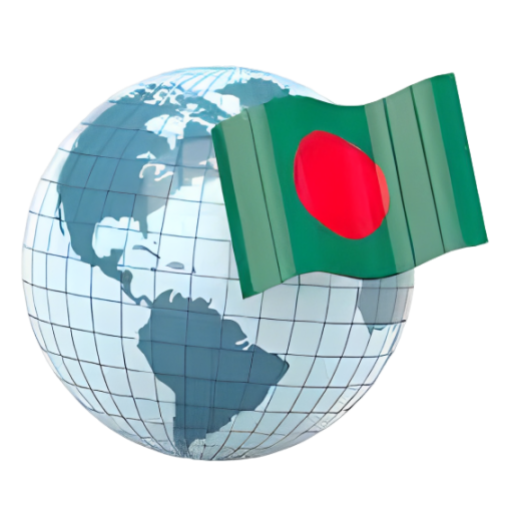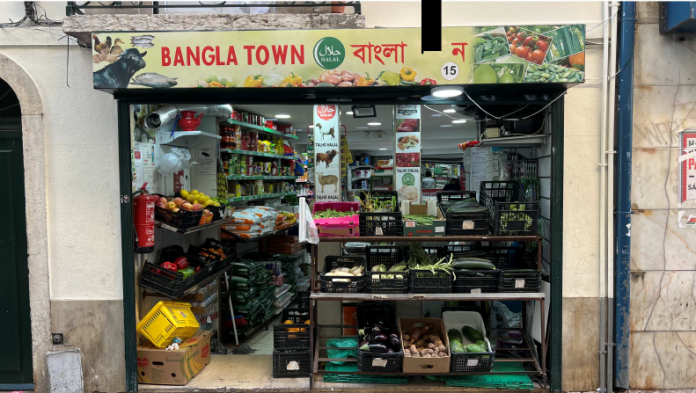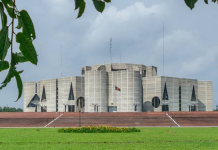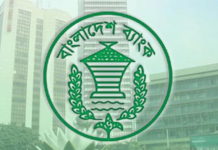The natural beauty, culture, and tranquility of Portugal, especially Sintra (a picturesque place near Lisbon) captivated the mind of Lord Byron, the famous British poet in early 19th century, as reflected in his famous poem Childe Harolde’s Pilgrimage. Since the 1990s, many Bangladeshis began to flock to Portugal for mundane reasons: economic opportunities and easier immigration rules.
Portugal, a small country with a population of only 10.4 million, has a rich history and culture. Pioneered by the great explorer Vasco da Gama, the great explorer, Portugal managed to colonise several countries such as Brazil, Angola, Goa, and Macau. Today, in the post-colonial Portugal, thousands of immigrants from former colonies and other countries, including Bangladesh, have become Lisboetas (those who live in Lisbon, the capital city).
This year, Portugal has imposed significant restrictions on those who can live, work in and immigrate to Portugal, adversely affecting the prospective migrant workers from Bangladesh.
A few weeks ago, I had a conversation with Mani Rahman, a Bangladeshi vlogger who lives in Lisbon, who provided glimpses of the Bangladeshi diaspora community in Lisbon.
(Sadequl Islam (S.I): At what age did you come to Lisbon? For how many years have you been involved in vlogging?
Mani Rahman (M.R): I came to Lisbon at the age of 36. I have been involved in vlogging for five years.
 S.I: Approximately, how many Bangladeshis do live in Lisbon?
S.I: Approximately, how many Bangladeshis do live in Lisbon?
M.R: About 40,000 Bangladeshis live in Lisbon. Another 10,000 Bangladeshis live in other places in Portugal. Many Bangladeshis in Lisbon originate from Sylhet.
S.I: Have most of Bangladeshis in Lisbon come legally or illegally?
M.R: Most Bangladeshis have come to Lisbon legally from other European countries through the “safe entry system”, which allows visitors, especially from countries belonging to the Schengen Area, to visit Portugal and apply for work permits and permanent resident status.
S.I: In recent years, many Bangladeshis have moved to Portugal from other European countries? Why?
M.R: It has been relatively easy to obtain work permits and permanent resident status in Portugal compared to other European countries.
S.I: What are typical jobs in which unskilled Bangladeshis are involved?
M.R: Typically, unskilled Bangladeshis work in restaurants, food delivery, and souvenir stores. Some Bangladeshis also work in the agriculture sector.
S.I: What is the main location of Bangladeshi grocery stores and restaurants in Lisbon
M.R: Most of Bangladeshi stores and restaurants are located on Rua do Benformoso street in the Martim Moniz area.
S.I: Can you provide some information about wages and working conditions concerning unskilled workers in Lisbon?
M.R. The minimum monthly wage is 820 Euros. However, workers without relevant documents often work at less than the minimum wage. For these workers, there are no standard rules concerning working hours, paid leaves, and overtime payments.
S.I: Do workers including Bangladeshi workers get free healthcare services from government agencies?
M.R: Yes.
 S.I: How much does a single worker pay monthly for renting a room in apartment or house?
S.I: How much does a single worker pay monthly for renting a room in apartment or house?
M.R: The monthly rent in a shared room starts from about 200 Euros.
S.I: Does a worker send money to Bangladesh? If yes, on a regular or irregular basis? How much per month?
M.R: For the vast majority of Bangladeshi  workers, there is little saving from their income.
workers, there is little saving from their income.
Accordingly, they can not afford to send money on a regular basis.
S.I: Is there any association of Bangladeshis in Lisbon? Do workers attend any cultural functions and religious functions such as 21st February, Eid festivals, social events –picnics, outings, sports. Does this association provide any service to new comers?
MR: There is an association of Bangladeshis in Lisbon, which undertakes various functions. However, there is little intermingling of the Bangladeshi unskilled workers and relatively well-off and successful Bangladeshis in Lisbon. The association provides little help to new comers to Lisbon.
S.I: Do Bangladeshi workers live in a particular area of Lisbon?
M.R. Bangladeshi workers are mainly concentrated in the working-class area of Martim Moniz.
S.I: Have some Bangladeshi workers visited Bangladesh since they came to Lisbon?
M.R: Many Bangladeshi workers can not afford to visit Bangladesh.
S.I: Have some workers taken any course or training to upgrade their skills?
M.R: For many new comers, the language barrier is a major obstacle. There are some programs offered by government agencies to upgrade workers’ skills.
S.I: Are there any schools for learning Bengali and Bengali music, and mosque managed by Bangladeshis in Lisbon?
M.R: There are no schools for learning Bengali and music; however, there is a mosque in Lisbon.
 S.I: Do Bangladeshi children study in English or Portuguese language? Are elementary and high school education free for all children?
S.I: Do Bangladeshi children study in English or Portuguese language? Are elementary and high school education free for all children?
M.R: Bangladeshi children study in public schools where the medium of instruction is Portuguese. Some Bangladeshi families report that their children sometimes face bullying in schools.
S.I: Is there any magazine, newspaper published by Bangladeshis in Lisbon?
M.R: No.
S.I: Is there any pervasive discrimination against immigrants in Lisbon.
M.R: Portugal is a peaceful country. As in other European countries, socio-economic discrimination exists in Portugal. However, the intensity of anti-immigration feelings is much lower in Portugal, compared to other European countries. Generally, Bangladeshi people in Portugal are peaceful and are not involved in criminal activities.
S.I: Are there some Bangladeshis in Lisbon who have become successful in business or professional careers?
M.R: Yes.
 Mani Rahman is an experienced vlogger who lives in Lisbon, Portugal. In 2023, he moved from the Czech Republic to Lisbon. Thus far he has uploaded 104 videos on You Tube.
Mani Rahman is an experienced vlogger who lives in Lisbon, Portugal. In 2023, he moved from the Czech Republic to Lisbon. Thus far he has uploaded 104 videos on You Tube.
Sadequl Islam is a professor and former Chair of economics at Laurentian University, Ontario, Canada. He has an MA and a Ph.D. in economics from the University of Manitoba, Winnipeg. He also has an MA in economics from Dhaka University. His research and teaching fields include macroeconomics, international economics, applied econometrics, and the Chinese economy. His publications include many articles in scholarly journals and a book The Textile and Clothing Sector of Bangladesh in a changing World Economy published by the Centre for Policy Dialogue and the University Press. He was a visiting scholar at El Colegio de Mexico, University of Michigan (Ann Arbor), and the Centre for Policy Dialogue. E-mail: sislam@laurentian.ca





